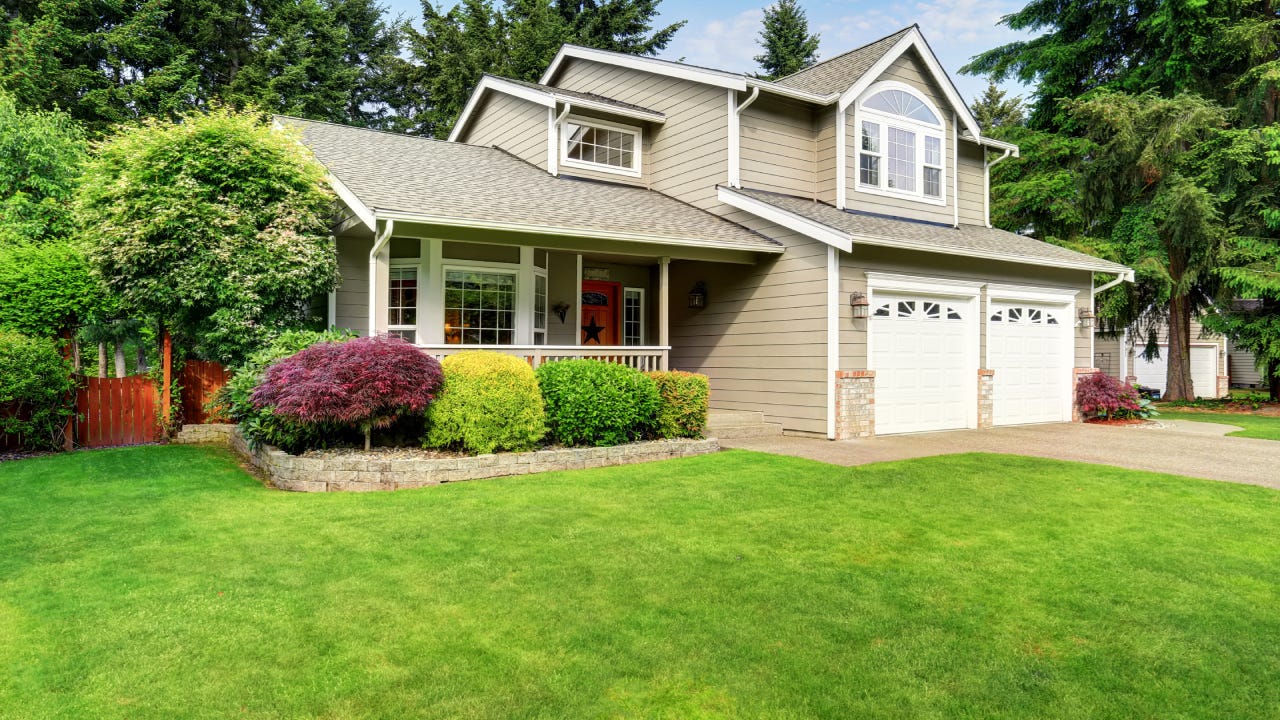How much house can I afford with a $160,000 salary?

Earning six figures is nothing to sneeze at. If you make $160,000 a year and you’re looking to buy a home, you’re likely to have more options than many other folks — the median household income in the U.S. is less than half of that at $74,580 a year, according to U.S. Census data.
Finding a home you can comfortably afford that meets your needs isn’t always easy, though, no matter how much you earn. Here’s how to determine how much house you can afford on a $160K salary, without stretching yourself too thin.
The 28/36 rule
The 28/36 rule, which suggests that you shouldn’t spend more than 28 percent of your gross monthly income on housing costs, is a good starting point. The 36 percent part is how much of your income goes to all your debt in total, including housing and also things like student loans and credit card bills.
This is more of a guideline than a hard-and-fast rule, but it’s a useful method to help you figure out how much you can afford to spend on a home while still being able to meet your other financial obligations. Many lenders do take it into consideration when reviewing mortgage applications.
How much house can you afford?
When using the 28/36 rule, start by dividing your salary by 12 to come up with a monthly figure, and then multiply that figure by 0.28 to get 28 percent. Here’s how it breaks down with your $160,000 salary:
- $160,000 / 12 = $13,333 (your gross monthly income)
- $13,333 x 0.28 = $3,733 (the most you should spend on housing costs each month)
- $13,333 x 0.36 = $4,800 (the most you should spend on total debt each month)
Bankrate’s mortgage calculator can help you figure out how that $3,733 monthly payment translates into an actual home price. Assuming a 20 percent down payment and a 7.5 percent interest rate on a 30-year mortgage, the monthly principal and interest payment on a $600,000 home would come to $3,356. That gives you a cushion of about $377 to account for property taxes and homeowners insurance premiums, which will vary based on your location, before you hit the $3,733 maximum.
So your $160,000 salary will afford you a $600,000 home — hypothetically. Keep in mind that these calculations do not include your down payment or closing costs.
Here are some other things to consider while you budget:
- Your credit score: Those with the highest credit scores will qualify for the lowest interest rates.
- Your debt-to-income ratio: DTI is a measure of your debt as compared to your income — how much money is coming in vs how much is going out, so to speak.
- Your down payment amount: A typical 20 percent down payment on $600,000 comes to $120,000, a hefty amount to have to pay upfront. Many loans have lower down payment requirements, but the more you pay upfront, the less you have to borrow. That means lower monthly payments and less interest to pay. Putting down a full 20 percent also lets you avoid having to pay extra for private mortgage insurance.
- Your desired location: Different areas have different housing markets, and your $600,000 budget will go a lot farther in some areas than others. In Miami, for example, the median home price is $580,000, according to September Redfin data. So your budget will get you something very close to the middle of the market there. In a pricier city like San Diego, where the median price is $890,000, it won’t stretch nearly as far, but in a more affordable one like Indianapolis, where the median is just $235,000, you might wind up with something like a mansion.
Home financing options
Even with your high salary, you probably don’t have $600,000 in cash burning a hole in your pocket. There are several financing options you can explore when buying a home.
Different types of loans
Many types of mortgage products can help you make this high-ticket purchase. Most options have minimum credit score and down payment requirements. FHA loans, insured by the Federal Housing Administration, have more flexible requirements than conventional loans, but with a $160,000 salary, a conventional loan is likely your best bet. The higher your credit score, the better terms you’ll qualify for. And if you’re an active or retired military service member, look into a VA loan, which may require no down payment at all.
First-time homebuyer programs
Assistance programs exist at local, state and federal levels to help buyers meet the rigorous financial demands of homeownership. Qualified first-time buyers may be eligible for grants or special loans to help them cover down payment and closing costs — however, these programs typically have income limits, and your high salary may mean you don’t qualify.
Get preapproved for a mortgage
A preapproval letter from a lender is an important tool to have in your arsenal. Getting preapproved for a mortgage tells you how much a lender is likely to loan you, which can be crucial when setting your budget and narrowing down which listings are in your price range. If you’re looking in a very competitive market, it can also give you an edge over other buyers who are not preapproved. Shop around for lenders based on interest rates, fees and other services — but remember that, when you’re ready to buy, you’re not obligated to go with the same lender that preapproved you.
Next steps
Ready to jump into the market and see how much house you can afford on your $160,000 salary in your area? Be sure to have a local real estate agent at your side to guide the way. An agent that knows the area you’re looking in well can help you find the options that best meet your needs — and your budget.
Why we ask for feedback Your feedback helps us improve our content and services. It takes less than a minute to complete.
Your responses are anonymous and will only be used for improving our website.
You may also like

What is a physician mortgage loan?

How much house can I afford with a $180K salary?




